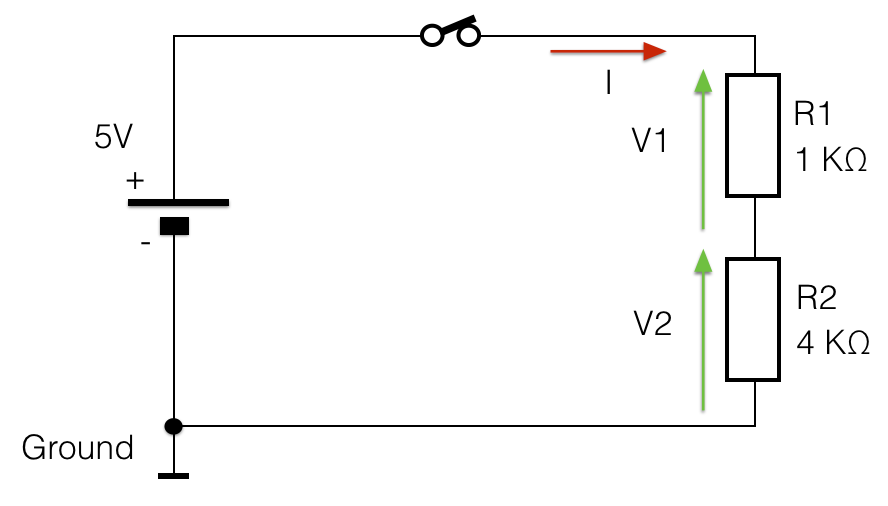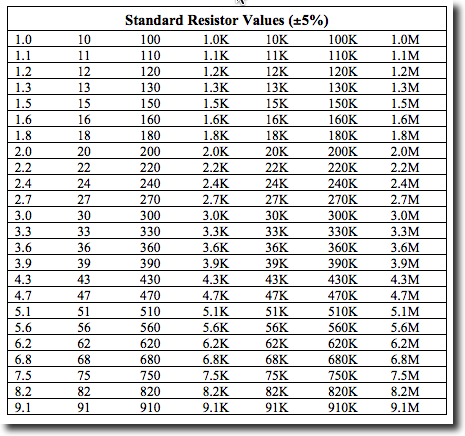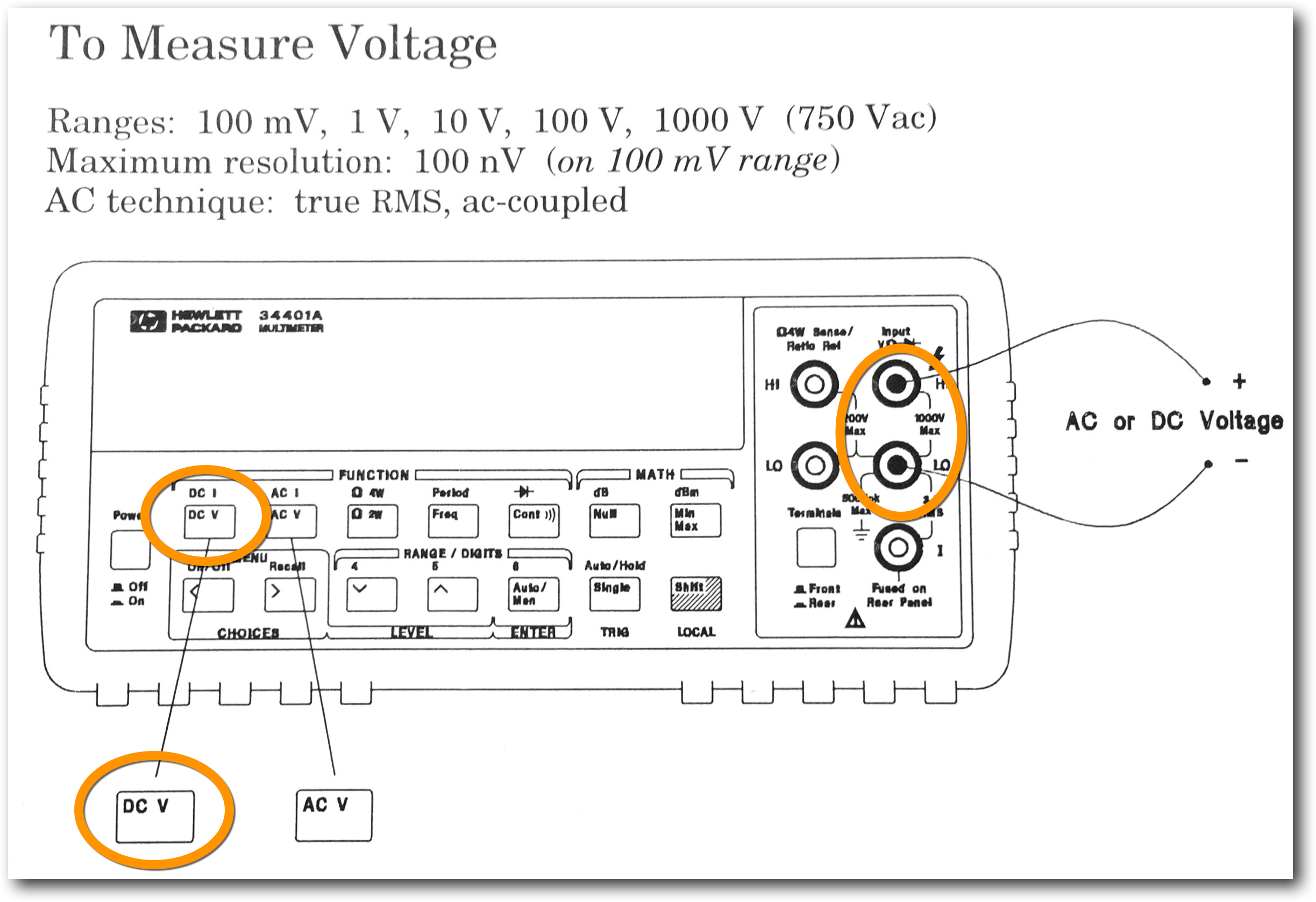Difference between revisions of "CSC270 Lab 3 2016"
(→Measuring Voltages with the Agilent 34401A Voltmeter) |
(→Part 1: Ohm's Law) |
||
| Line 14: | Line 14: | ||
* You may not be able to find a 4 KOhm resistor, but most likely a 3.9 KOhm one. (See chart below, taken from [http://ecee.colorado.edu/~mcclurel/resistorsandcaps.pdf ecee.colorado.edu/~mcclurel]. | * You may not be able to find a 4 KOhm resistor, but most likely a 3.9 KOhm one. (See chart below, taken from [http://ecee.colorado.edu/~mcclurel/resistorsandcaps.pdf ecee.colorado.edu/~mcclurel]. | ||
<br /> | <br /> | ||
| − | [[Image:ResistorChartByValue.png| | + | [[Image:ResistorChartByValue.png|400px|center]] |
<br /> | <br /> | ||
===Measuring Voltages with the Agilent 34401A Voltmeter=== | ===Measuring Voltages with the Agilent 34401A Voltmeter=== | ||
Revision as of 14:54, 9 February 2016
--D. Thiebaut (talk) 14:43, 9 February 2016 (EST)
Electronics, Diodes, and Transistors
Part 1: Ohm's Law
- For this part, you will implement the circuit below on the breadboard and you will measure V1 and V2 (see more information about the voltmeter below). Verify that V1 + V2 = 5 V and that V1/R1 = V2/R2.
- You may not be able to find a 4 KOhm resistor, but most likely a 3.9 KOhm one. (See chart below, taken from ecee.colorado.edu/~mcclurel.
Measuring Voltages with the Agilent 34401A Voltmeter


